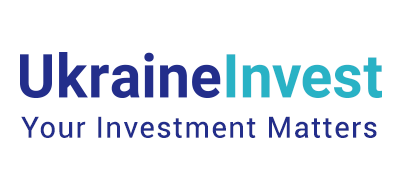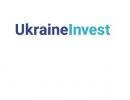UKRAINEINVEST ISSUES THE BUSINESS WEEK, A FREE ON-LINE PUBLICATION CONTAINING A WEEKLY SUMMARY OF IMPORTANT BUSINESS NEWS IN UKRAINE, FOR 9 APRIL, 2018.

21st century telecommunication arrives in Ukraine as the major service providers roll out 4G and 4G+
Millions of Ukrainians are upgrading their cell service to 4G this week as two of the top three mobile operators, Vodaphone Ukraine and Lifecell, say 4G service will be up and running in the nation’s largest cities. Kyivstar will follow next week, by April 10. Kyivstar president Peter Chernyshov writes on Facebook: “It is important for us that our subscribers get a positive experience of using the service. Quickly does not always mean quality.” Subscriber bases are: Kyivstar - 26.5 million; Vodafone Ukraine -- 20.8 million; Lifecell -- 8 million.
Vodafone Ukraine launched Ukraine’s first 4G mobile service over the weekend in Kyiv and 19 cities, Olha Ustinova, company CEO told reporters Thursday. By Monday, this fast service is to be available at Boryspil airport and in nine regional capitals: Chernivtsi, Dnipro, Ivano-Frankivsk, Kharkiv, Kherson, Lutsk, Odesa, Poltava, and Sumy. Vodaphone Ukraine estimates that one third of its subscribers have 4G capable smartphones. It predicts that 4G will double average traffic consumption per subscriber. Vodafone Ukraine also plans to increase its Vodaphone store network 10-fold – from 30 today to 300-350 by the end of next year.
The three mobile phone companies paid a total of $300 million last month for 4G licenses. President Poroshenko celebrated 4G arrival, writing on Facebook: «Communication of the fourth generation from now in Ukraine. Mobile operators launch 4G in more than twenty cities of Ukraine! I congratulate Ukrainians on the introduction of 4G!» Earlier in his presidency, in 2015, Ukrainians received 3G mobile service.
Agriculture
- T. B. Fruit, one of Ukraine’s largest fruit processors, has built a pectin production line at its juice factory in Horodok, Lviv region. Extracted from citrus fruits, pectin is largely used as a gelling agent for jams and jellies. The Lviv factory will produce about 1,500 tons a year, with the opportunity to increase to 3,000 tons. While Ukraine will need more pectin as food processing increases, world pectin demand is 40,000 tons and growing annually by 5%. Roman Zuzok, vice president for sales and corporate development, tells Interfax-Ukraine that T.B. Fruit plans to join the International Pectin Producers Association.
Automotive
- In a politically popular move that could change the face of Ukrainian transportation, Rada deputies propose that cars be imported after owners pay flat fees of 500 euros. This single fee would replace VAT and excise duties that often top 6,000 euros. The new fee would apply to new cars and used cars less than 10 years old. Rada Deputy Oleksandr Shevchenko from UKROP, or the Ukrainian Association of Patriots, tells UNIAN: «In our time, a car is really not a luxury, but a means of transportation. It is needed for everything – for families, to go to doctors when they are sick, for entrepreneurs, to be mobile and have time to do business, for average people, to visit relatives, travel and relax.”
Banking & Finance
- In the latest easing for foreign exchange controls, the National Bank of Ukraine implemented Friday five liberalization measures. Steps include: lifting some restrictions on early repayment by foreign companies of foreign currency loans; expanding the list of business operations not subject to mandatory sales of foreign exchange earnings; simplifying the transfer of foreign currency abroad to make payments related to litigation processes.
Business
- UkrOboronProm, the state-owned defense conglomerate, is cutting 40% of senior management, from 286 to 180, under a new management strategy implemented by Pavlo Bukin, who took over Feb. 21 as director general. UkrOboronProm’s press office says: “The funds saved will be allocated to introducing new research and design activities.” A new four-member Supervisory Board oversees the holding company, which includes 130 defenserelated companies. This new board approved the contracting of Baker McKenzie, Grant Thornton, DLA Piper Ukraine, The Boston Consulting Group, Dentons Europe, Ernst & Young Audit Services, Deloitte & Touche USC and Roland Berger as consulting companies to carry out a 2-year, $5 million audit of the state company.
Energy
- The Cabinet moved Thursday to postpone hikes in household gas prices for at least two months. The IMF has made the resumption of aid to Ukraine contingent on Kyiv gradually raising household gas prices to close the 30% price gap with imported gas.
- In Kyiv, Justice Minister Pavel Petrenko told reporters Thursday: «I am convinced that Gazprom has no chance to escape liability, and the amount of debt recorded by the court decision will only increase, and it will be fully recovered in the near future.» Referring to his plans to seize Gazprom assets outside of Russia, he added: «The ostrich hides its head in the sand. But the rest of the body remains on top. This other part of the body is the assets, the property that Gazprom has around the world.»
Infrastructure
- Driving time from Odesa to Ukraine’s Danube port of Reni will be cut in half when work is completed this year on the 189 km road, President Poroshenko writes on Facebook. Providing a stimulus to regional tourism, it will take three hours to drive from Odesa, through Ukrainian Bessarabia, to Reni, a small city which borders Moldova and faces Romania across the Danube.
- Infrastructure Minister Volodymyr Omelyan wants the government to spend $370 million to rebuild runways at five regional airports next year. He spoke at a Carpathian transport conference in Ivano-Frankivsk, Ukrinform reports. Of the three airports in the Carparthians, Uzhhorod has not had commercial service in two years. Ivano-Frankivsk and Chernivtsi are only connected to Kyiv by UIA Embraer commuter jets. Talking to UBJ.am, Omelyan said recently: “Most Ukrainian airports were built in the ‘50s and ‘60s, with very poor quality runways -- concrete blocks pushed into the ground. They are only good for small aircraft, not Boeings.”
UkraineInvest Update
Ukraine is Innovation and Opportunity!
In four short years after the Revolution of Dignity, Ukrainian society has undergone a massive tectonic shift as it shed the legacy of its Soviet past and chose a pro-western democratic orientation which continues to gain strength and momentum every day.
Driven largely by the passion and determination of its youth, Ukraine is rapidly becoming a new country promoted by a young class of reform oriented leaders in science and government. In fact it was the latter who, following the Revolution in 2014, rose to the challenge and played a significant role in steering the country away from crisis to macroeconomic stabilization; commenced a program of robust decentralization; introduced ‘Prozorro’ a world class procurement system; unbundled energy sector monopolies, implemented police reform and signed a Free Trade and Association Agreement with the European Union. As always, Ukraine’s international partners provided support and guidance to this unprecedented transformation process.
Important as these achievements were, they are only the beginning. In April 2017 the Government adopted its Strategy 2020 with the goal of boosting economic growth to 5-7% by 2020, thereby ensuring long-term prosperity for all Ukrainians. The plan also lays the groundwork for positioning Ukraine as the Eurasian Hub, where it can use its geographic and market advantage to compete at the crossroads of two of the world’s largest economic trading blocks, European and Asian.
We at UkraineInvest share this vision and pursue our 4+1 sector strategy which focuses on the key drivers of Ukraine’s economy: Agribusiness; Energy (especially renewables); Manufacturing; and Infrastructure, with Innovation Technology linking all of these sectors. At the same time, UkraineInvest’s message – that global supply chains can benefit from the innovation and opportunities offered by Ukraine’s “Brains and Grains” (especially in Ukraine’s fastgrowing regions) – resonates positively with investors. Similar sentiments are expressed after they consider the massive potential of Ukraine’s untapped agri-food value chain; the attractiveness of Ukraine’s green tariff relating to renewable energy projects; the growth of European supply-chain manufacturing clusters in the regions, especially automotive cluster in Western Ukraine; and the opportunities offered in rebuilding Ukraine’s Soviet era port, road and rail infrastructure.
In fact, Innovation and Opportunity are two sides of a single coin that represent Ukraine’s strongest message to the international investment community. This is particularly evident in the meteoric rise of Ukraine’s IT sector, which in only five years, has exploded from a fringe economic activity to the country’s third largest export. In 2017 alone IT services grew by 20%, hitting $3.2 billion and in the next five years it is estimated to double in size! This fact alone places Ukraine well on its way to becoming the World’s Digital Workshop!
By the second half of 2017 it became distinctly noticeable that the earlier negative narrative about Ukraine’s Soviet past had begun to change. The sheer weight of the country’s comparative advantages and the vigorous commitment of the Ukrainian government to draft and pass additional key structural reforms in 2017, all sent a clear and decisive signal to the international community and to the financial markets as well. In fact these efforts were crucial to the success of the government’s Eurobond issue in the fall of 2017 - a key market indicator of trust in the government’s investor-friendly reforms.


